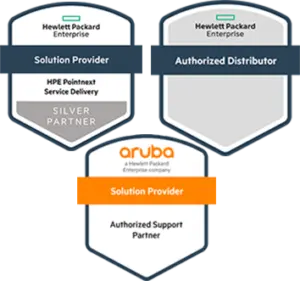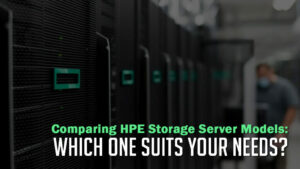
How HPE’s AI-Native Architecture Is Redefining Enterprise Computing
Integrating artificial intelligence (AI) is a pivotal juncture in the ever-evolving landscape of enterprise computing, heralding a new era of operational efficiency, innovation, and strategic prowess. Hewlett Packard Enterprise (HPE) is at the forefront of this transformation, spearheading the development and deployment of AI-native architectures that promise to redefine the paradigms of enterprise computing. This groundbreaking approach not only enhances computational capabilities but also paves the way for enterprises to harness the full potential of AI, thereby driving unparalleled business outcomes.
HPE’s AI-native architecture is a testament to the company’s commitment to innovation, offering a seamless blend of advanced computing technologies, sophisticated AI algorithms, and a robust infrastructure designed to meet the dynamic needs of modern enterprises. So by embedding AI at the core of its computing architecture, HPE enables businesses to accelerate their digital transformation, optimize operational processes, and unlock new opportunities for growth and competitiveness.
In this blog, we delve into the intricacies of HPE’s AI-native architecture, exploring its components, functionalities, and the tangible benefits it offers to businesses across various industries. We will examine how this revolutionary architecture is not just an incremental upgrade but a complete overhaul of enterprise computing, setting new standards for performance, scalability, and intelligence in the digital age. Join us as we uncover the future of enterprise computing, shaped by HPE’s visionary AI-native framework.
The Evolution of Enterprise Computing

The landscape of enterprise computing has undergone a remarkable transformation over the years. The journey has been revolutionary, from the colossal mainframes of the 1960s to today’s AI-driven, cloud-based ecosystems. So in this post, we’ll stroll down memory lane, exploring the milestones that have shaped the world of enterprise computing and peek into what the future holds.
The Dawn of the Digital Era: Mainframes and Minicomputers
The story begins in the 1960s, with the advent of mainframe computers. These behemoths were the backbone of business computing, handling vast amounts of data and supporting multiple users simultaneously. However, their hefty price tag and complex maintenance requirements made them accessible to only the largest corporations.
As technology progressed, the 1970s saw the introduction of minicomputers. More affordable and compact, these machines democratized computing power, allowing smaller businesses to harness the benefits of digital technology. Despite their smaller size, minicomputers were mighty, capable of performing a wide range of tasks from data processing to supporting business applications.
The Internet and the Rise of Client-Server Architecture
The 1990s introduced the world to the internet, forever changing the enterprise computing landscape. The client-server model became prevalent, with lightweight clients requesting services from powerful central servers. This era also saw the birth of the World Wide Web, e-commerce, and the early stages of cloud computing, setting the stage for a globalized business environment.
The 21st Century: Cloud Computing and Beyond
The turn of the century brought with it the cloud computing revolution. Businesses began to move away from owning and maintaining physical hardware instead of renting computing power and storage from cloud providers. This shift reduced costs and increased flexibility and scalability, allowing enterprises to adapt more swiftly to market changes.
Therefore today, we stand at the brink of a new era dominated by artificial intelligence (AI), machine learning, and edge computing. These technologies promise to automate and optimize a wide range of business processes, from customer service to predictive maintenance, heralding a future where enterprise computing is not just about supporting businesses but actively driving their growth.
READ MORE:
https://ictdistribution.net/mm/blog/2023/12/28/reliability-of-hpe-msa-storage/
Looking Ahead: The Future of Enterprise Computing
As we gaze into the future, it’s clear that enterprise computing will continue to evolve at an unprecedented pace. Integrating AI and machine learning will make systems more intelligent and autonomous. At the same time, advancements in quantum computing and blockchain technology have the potential to revolutionize data security and processing power.
The journey of enterprise computing has been one of continuous innovation and adaptation. From the mainframes of the past to the cloud-based, AI-driven ecosystems of today, each phase has built upon the last, pushing the boundaries of what’s possible. As we move forward, one thing is sure: the evolution of enterprise computing is far from over, and its future is as exciting as it is unpredictable.
Benefits of HPE’s AI-Native Architecture for Enterprises

In the ever-evolving landscape of technology, businesses are constantly seeking innovative solutions to stay ahead. Hewlett Packard Enterprise (HPE) has been at the forefront of this innovation, especially with its introduction of AI-native architecture. This approach to enterprise computing is not just a trend; it’s a transformative shift that offers many benefits to businesses willing to embrace it. Let’s dive into the advantages of HPE’s AI-native architecture and explore how it’s redefining the enterprise computing arena.
Enhanced Efficiency and Scalability
One of the most significant benefits of adopting HPE’s AI-native architecture is its remarkable efficiency and scalability. Enterprises deal with an ever-increasing volume of data, making traditional computing architectures need help to keep up. HPE’s solution directly integrates AI and machine learning into the computing environment, allowing for real-time data processing and analytics. So it means businesses can scale their operations without compromising speed or performance, a critical advantage in today’s fast-paced market.
Unparalleled Data Management and Analytics
The core of any AI-native architecture lies in its ability to manage and analyze data efficiently. HPE excels by providing tools that store vast amounts of data and make sense of it in real time. This capability enables businesses to gain insights faster than ever before, driving decision-making processes that are informed, strategic, and timely. Whether predicting market trends or identifying operational inefficiencies, HPE’s architecture empowers enterprises with actionable intelligence.
Robust Security Measures
As enterprises embrace AI-native architectures, the security of their data and operations becomes paramount. So HPE understands this necessity and incorporates advanced security features within its architecture. By leveraging AI and machine learning, HPE’s solutions can predict and neutralize threats before they become issues, ensuring that businesses’ data remains safe and secure. Moreover, this proactive approach to security is a game-changer, providing peace of mind in an era where cyber threats are increasingly sophisticated.
Customization and Flexibility
No two businesses are the same. HPE’s AI-native architecture reflects this reality by offering high customization and flexibility. Whether it’s a small startup or a large multinational, HPE’s solutions can be tailored to meet any enterprise’s unique needs and challenges. This flexibility ensures that businesses receive a one-size-fits-all solution and a bespoke architecture that aligns with their specific goals and requirements.
Real-World Applications Across Industries
The versatility of HPE’s AI-native architecture means it has applications across a broad range of industries. The possibilities are endless, from healthcare, where it can accelerate diagnostics and patient care, to finance, where it can enhance fraud detection and risk management. Manufacturing, retail, and telecommunications are just a few other sectors that can benefit from the real-time analytics, improved efficiency, and enhanced security that HPE’s solutions provide.
Preparing for the Future
Adopting HPE’s AI-native architecture is not just about addressing today’s challenges; it’s also about preparing for the future. As technology advances, enterprises that leverage AI-native solutions will find themselves ahead of the curve, ready to embrace new opportunities and innovations. HPE’s commitment to research and development in areas like quantum computing and edge computing ensures that its AI-native architecture will continue to evolve, offering businesses a pathway to future growth and success.
Conclusion
The transition to AI-native architectures represents a significant leap forward for enterprise computing. HPE’s AI-native architecture offers businesses a powerful toolset to enhance efficiency, secure operations, and gain actionable insights from their data. By embracing these solutions, enterprises can solve today’s challenges and position themselves for success in the rapidly changing technological landscape. So in the journey toward innovation and growth, HPE’s AI-native architecture is a crucial ally for businesses worldwide.
Therefore, as we navigate the complexities of modern enterprise computing, the benefits of adopting AI-native solutions become increasingly apparent. For businesses ready to take the next step, HPE offers a promising path forward, marked by efficiency, security, and adaptability. The future of enterprise computing is here, and it’s AI-native.
Seeking a dependable and cost-effective HPE distributor in Bangladesh? ICT Distribution Bangladesh stands out as the premier choice. With our exceptional service, expert team, and cutting-edge technology solutions, we are uniquely positioned to enhance your business’s capabilities. Ready to take your operations to the next level? Connect with our sales team without delay. For a seamless partnership experience and to drive your business’s growth, reach out to Khurshid Alam at khurshid.alam@ictdistribution.net. Let’s embark on a journey towards success together.
READ MORE:
https://ictdistribution.net/mm/blog/2023/12/26/hpe-primera/
Latest Posts


How HPE’s Innovations Are Shaping the Next Decade of Technology
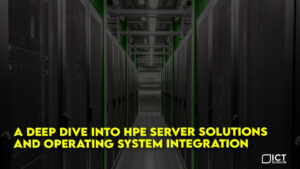
A Deep Dive into HPE Server Solutions and Operating System Integration
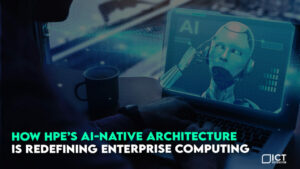
How HPE’s AI-Native Architecture Is Redefining Enterprise Computing
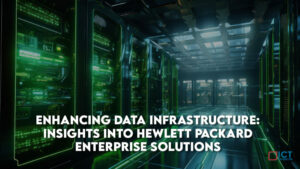
Enhancing Data Infrastructure: Insights into Hewlett Packard Enterprise Solutions

Comparing HPE Storage Server Models: Which One Suits Your Needs?

How HPE’s Innovations Are Shaping the Next Decade of Technology

A Deep Dive into HPE Server Solutions and Operating System Integration

How HPE’s AI-Native Architecture Is Redefining Enterprise Computing



